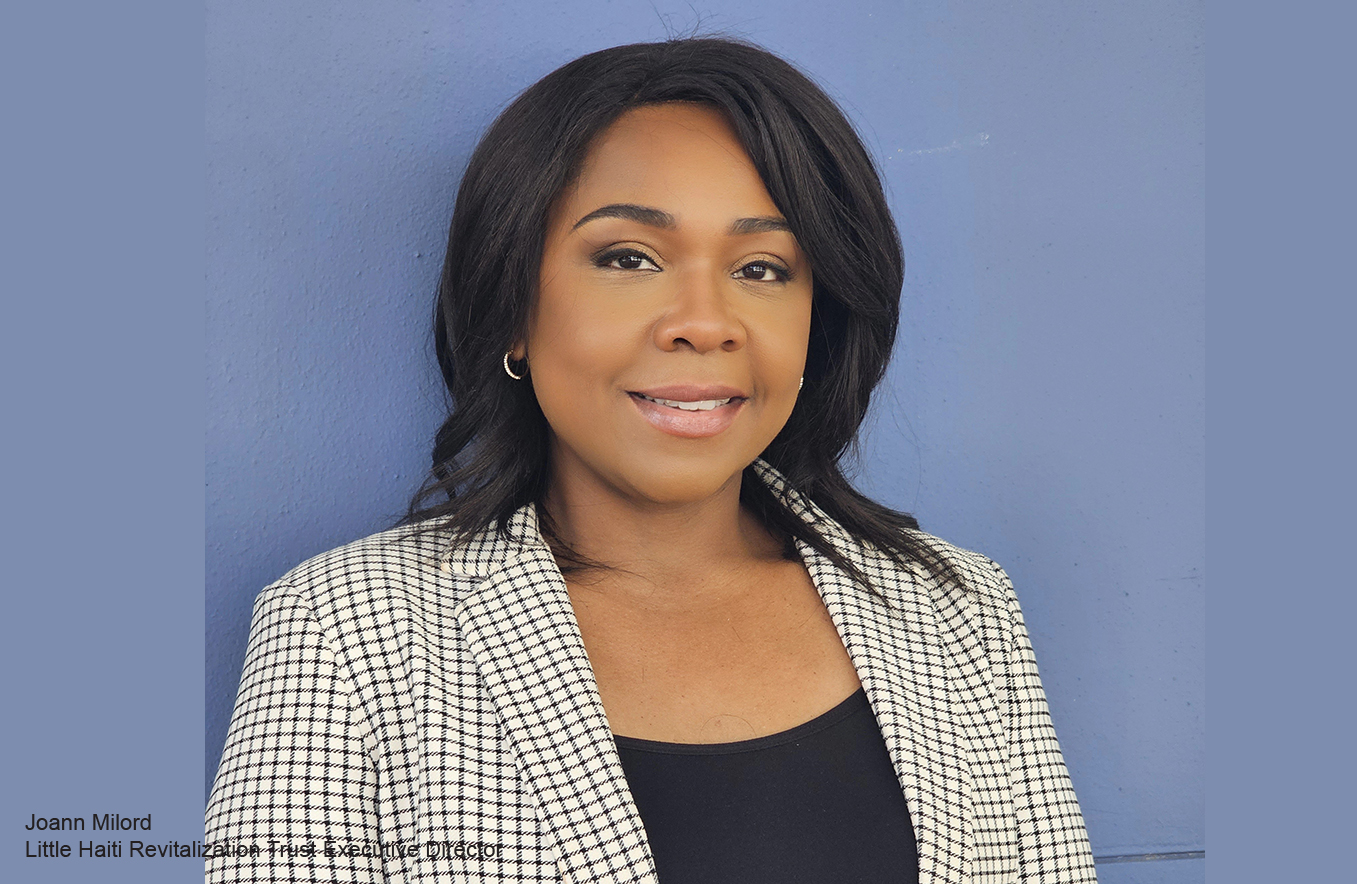By Lorenzo W. Snelling | Special to Le Floridien
LITTLE HAITI — Despite a mega mixed-use project threatening to change the identity of Little Haiti, the future of the community is looking brighter with plans of a major overhaul thanks to $6 million from the Magic City Innovative District development agreement.
The grant was recently awarded to the Little Haiti Revitalization Trust with the goal of boosting economic growth, affordable housing, creating jobs, career and community education and beautification projects.
Miami-Dade County has the largest Haitian population in the United States at 7 percent, according to the U.S. 2020 Census.
Little Haiti, which borders N.W./N.E. 54th Street, I-95, N.W. 80th Street and N.E. Second Avenue has a population of 29,128 and is home to Haitian immigrants.
Little Haiti Revitalization Trust President and CEO Joann Milord said the five-member board was created to have oversight of future development in the community.
She said $3 million came from the Magic City development agreement of which private developers commit funds to the Trust in exchange for their rights to build residential towers and commercial buildings based on the amount of square footage.
The development agreement committed a total of $31 million for Little Haiti over the 10 to 15 years the project will take to be completed.
Milord, who joined the Trust in June 2023, said the group is beginning to implement the plan, starting with helping small businesses in Little Haiti.
“We have the grant program, $10,000 and $20,000, for small businesses in Little Haiti,” she said.
But plans for the Magic City Innovative District, a mega-sized project of residential and commercial buildings in Little Haiti city of Miami Commissioners approved in 2019, may not reflect the character of the community.
Residents opposed the project because it could change the face of the neighborhood’s culture and might displace them.
According to the Miami Herald, the Magic City development team said it would cooperate with Little Haiti when building its projects.
While the Magic City proposal is planning to build multiple residential housing in Little Haiti, the Trust is trying to address the affordable housing shortage which has been on city commissioners’ radar.
Milord said the Trust’s plan is to build 70-100 affordable housing units in Little Haiti and tapped Florida International University for assistance to tackle the issue.
The median household income in Little Haiti was $18,887.49, according to the Census.
“We’re looking to double affordable housing properties in comparison to the county’s affordable housing plans,” she said. “We are looking at different strategies to address the issue.”
The Trust’s plan for economic development is strengthening mom and pop businesses by transforming a cluster of stores and shops into a downtown-like area.
Milord said the objective is to have the store fronts look more appealing including the Cultural Center, along N.E. Second Avenue and 54 Street to N.W. 63rd Street.
She also said the Trust is seeking to add more businesses to the area and a marketing place along the business corridor.
“The strategy is strengthening the business community and establishing Little Haiti as a cultural destination,” Milord said.
For job creation, Milord said the Trust is focusing on creating education and workforce programs which would help strengthen people’s job skills in Little Haiti.
Milord said the plan also includes encouraging businesses in Miami-Dade to hire their workforce from Little Haiti.
“The initiative is to provide training and hopeful businesses are willing to hire within the community,” she said.
The Trust is also implementing a plan to help the community adapt to changes with the Magic City developments.
“Community education and other programs will identify the needs of the business and residential communities and be able to strengthen the community in an economic way,” Milord said. “It’s a way for us to anticipate the changes coming to our area and adapt to those changes. “We want to make sure that businesses and residential areas are able to preserve that culture.”






